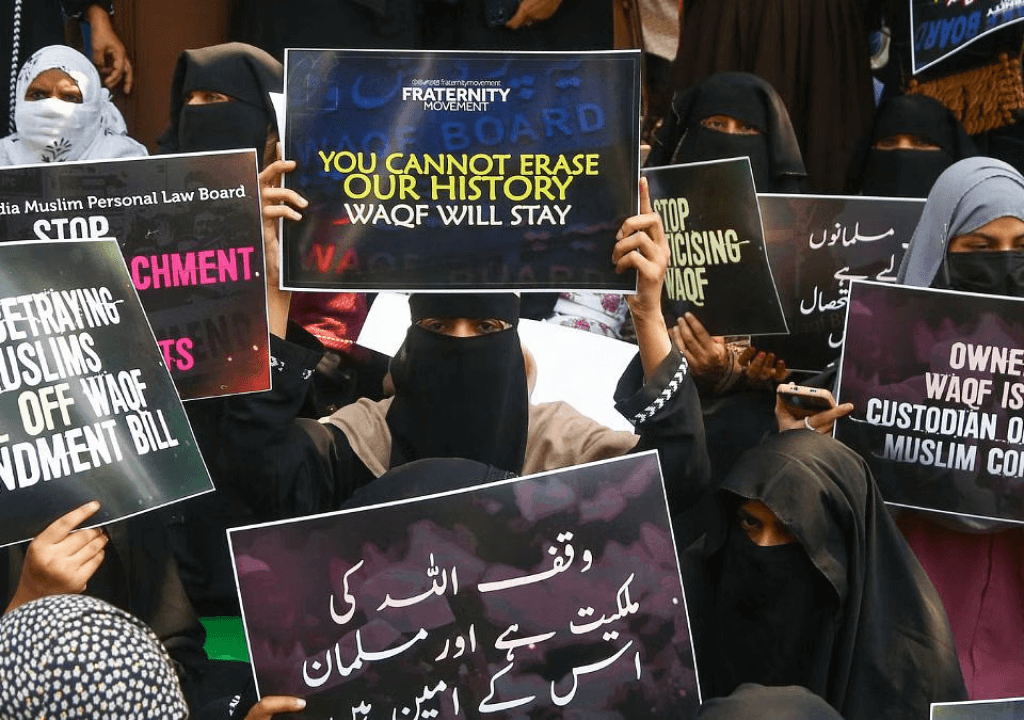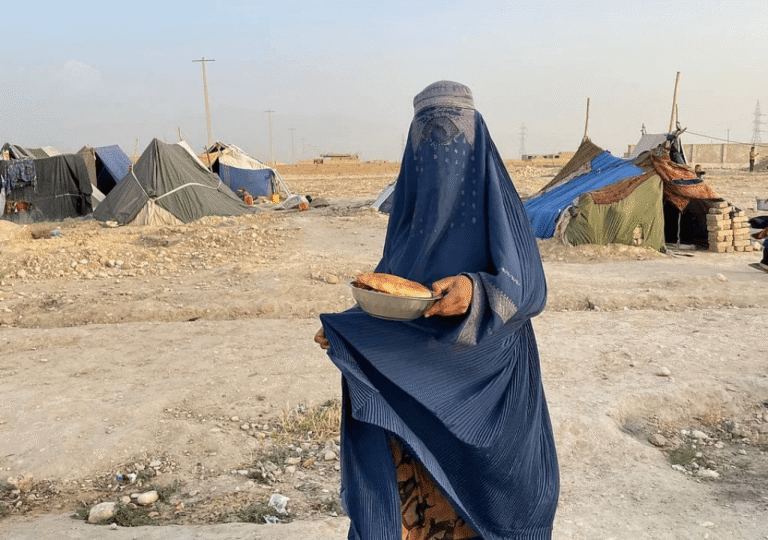Religion has long been one of the most sensitive and polarizing forces in India. This is hardly surprising in a country that is not only the birthplace of several major religions but also home to a population that has, for centuries, defended its faiths with fervor. Religion is deeply woven into the nation’s social and political life, continuing to shape both public discourse and electoral outcomes. Unsurprisingly, any legislation that touches on religious matters tends to ignite fierce debate.
A recent example is the Waqf (Amendment) Act, 2025, which has now been enacted into law. The Act introduces a host of new complexities in the functioning of the Waqf Board, the institution responsible for managing properties endowed for religious and charitable use within the Muslim community. Historically, particularly during the era of Muslim rule, large swathes of land—including those with pre-Islamic temples and long-established non-Muslim settlements—were brought under Waqf ownership. The current Hindu nationalist government, asserting a reformist agenda, has framed the new law as a measure to enhance transparency, secure property rights, and promote gender equality.
Given the government’s commanding parliamentary majority, the passage of the amendment was all but assured. The more precarious political challenge, however, has landed on the shoulders of the opposition. Parties like the Indian National Congress—long proponents of secular modernism in contrast to the religious nationalism espoused by Prime Minister Modi and the BJP—now find themselves compelled to oppose the amendment in order to retain the support of their Muslim base. Yet doing so places them in direct conflict with their own stated ideals of progressivism and modernity.
This is not the first time such a dilemma has emerged. Much like the controversy surrounding the triple talaq legislation, the Waqf amendment forces secular parties into an impossible balancing act: resisting the law may alienate liberal and secular-minded constituents, while endorsing it could be seen as abandoning a key electoral bloc. The BJP, meanwhile, has seized the opportunity to cast its rivals as beholden to Islamist interests—a narrative that not only undermines the opposition’s credibility but also complicates their path back to political relevance.
What’s the Waqf Act?
Waqf, an Islamic tradition, entails the permanent dedication of property for religious or charitable purposes. Though its roots in India trace back to the period of Muslim rule, the institution of Waqf expanded significantly under British colonial administration and continued to grow well after independence. Today, the Waqf Board manages an estimated 870,000 properties across 940,000 acres, with a cumulative value exceeding ₹1 lakh crore (approximately $12 billion). This makes it the third-largest landowner in the country, after the Indian Railways and the Armed Forces. Much of this expansion—particularly in the post-independence era—has been shaped by political patronage and legal ambiguities, prompting persistent calls for reform. The Bharatiya Janata Party (BJP) has made addressing these issues a recurring theme in its electoral platforms.
Mounting public pressure culminated in the passage of the Waqf (Amendment) Bill in 2024, which became law the following year. The legislation introduced sweeping changes to the governance of Waqf properties. Under traditional Islamic jurisprudence, such endowments can be established in three ways: by formal declaration, by long-standing public use (waqf by user), and through familial endowments (waqf-alal-aulad). The amended Act abolished the waqf by user provision and now permits only individuals who have practiced Islam for at least five years and who hold legal ownership of the property to declare it as Waqf. It also safeguards inheritance rights—particularly for women—by ensuring that familial endowments cannot override lawful claims by heirs.
The amendment also redistributed key administrative responsibilities. The task of surveying Waqf properties was transferred from the Survey Commissioner to district-level authorities such as District Collectors. It mandated the inclusion of Muslim women and members of non-Muslim communities on both the Central Waqf Council and State Waqf Boards. Additionally, the Act called for the establishment of separate Auqaf Boards for the Bohra and Agakhani communities, thereby expanding representation beyond the traditional Sunni-Shia divide and amplifying the voices of historically marginalized Muslim sects.
To improve transparency, the Act mandated the creation of a centralized online registry for Waqf properties and streamlined procedures for property mutation to align with existing revenue laws. It introduced a requirement for prior notice to all stakeholders before any property is designated as Waqf. The amendment also overhauled the tribunal system: Waqf Tribunal decisions are now subject to appeal in High Courts within a 90-day window. Outdated provisions, including Section 107, were repealed, bringing Waqf disputes under the purview of the Limitation Act of 1963.
Experts have largely welcomed the Waqf (Amendment) Act of 2025 as a timely and necessary reform. It advances gender equity by mandating female representation in governance, protects inheritance rights, and fosters greater sectarian inclusion. It also grants the Central Government expanded authority over registration, auditing, and financial oversight, aiming to bring more accountability to a system long criticized for opacity.
The politics of Act
Indian politics today is largely shaped by the assertive direction of the Narendra Modi government, while the opposition remains disoriented, struggling to define its own priorities. The Waqf Amendment Bill has become emblematic of this divide. For the BJP, the bill represents a legal instrument to address longstanding land disputes involving the Waqf Board—an effort framed as reclaiming public and historical land holdings for broader civic use.
In contrast, opposition parties, heavily reliant on Muslim electoral support, have consistently resisted legislation related to Muslim affairs—often regardless of its merit or potential benefit. Their opposition to the triple talaq ban, despite the practice being abolished in many Muslim-majority countries, was widely criticized as political appeasement. Such positions have increasingly alienated secular and liberal voters, many of whom now find themselves more aligned with the BJP’s reformist narrative.
The government has also capitalized on public dissatisfaction with the Waqf Board, particularly its claims over properties predating Islam, including ancient temples and heritage structures. In many cases, even local Muslim residents are unaware that the land they occupy is registered as Waqf—based on historical claims dating back to the medieval period. These issues have stirred broader debates over the legitimacy of religious land endowments rooted in conquest and the relevance of vast religious land holdings in a secular republic decades after partition.
By opposing the Waqf Amendment Bill and labeling it anti-Muslim, the opposition has inadvertently strengthened the BJP’s political positioning. Instead of recalibrating their stance, opposition leaders and Muslim political parties have turned to the Supreme Court—further reinforcing the BJP’s portrayal of them as obstructionist and disconnected from contemporary reformist sentiment.
What happens next?
The Waqf Act 2025 has triggered widespread protests among Muslim communities across India, highlighting the deep religious importance of the issue. In several areas, these protests turned violent, with some taking on openly anti-Hindu tones. In West Bengal—especially in regions with large numbers of Bangladeshi migrants—the unrest escalated into full-blown riots, resulting in deaths, injuries, looting, and widespread chaos.
These incidents have deepened existing communal tensions. At the same time, the violence in West Bengal has helped rally Hindu nationalist sentiment across the state. BJP supporters quickly closed ranks, using the unrest to argue that the opposition’s policy of communal appeasement has gone too far. This growing polarization is working in the ruling party’s favor, strengthening its political position ahead of the next round of elections.








